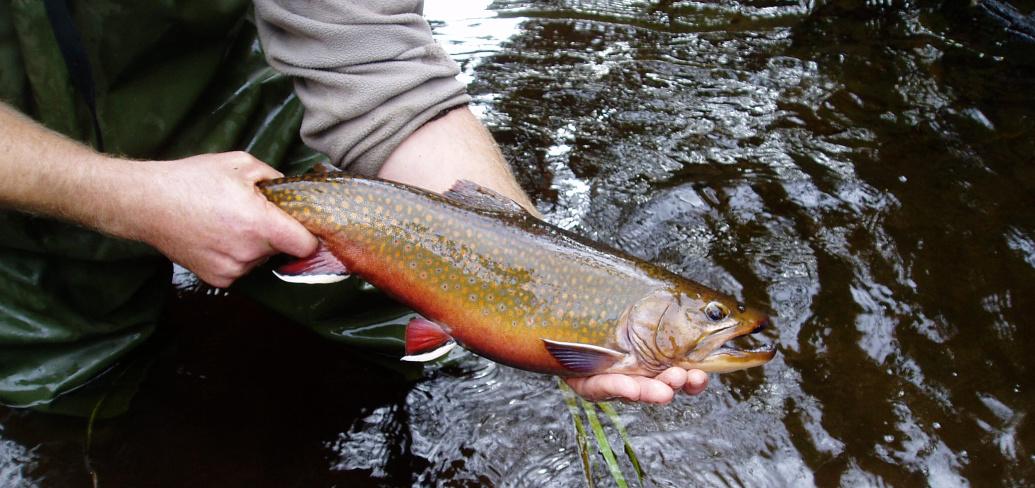
Beneath the surface of rivers and streams, Prince Edward Island’s freshwater fish are not immune to the changing climate.
The Island’s waterways are fed from naturally cool springs that flow at a constant temperature of seven to eight degrees Celsius year-round. This helps keep water temperatures in the cooler range preferred by native brook trout and Atlantic salmon, as well as rainbow trout that were introduced in the early 1900s.
However, warmer weather and more intense storms, combined with land use issues, have the potential to affect these species. Flatter, slower-moving streams, are particularly susceptible to excess warming especially in hot, dry summers.
Warmer water holds less oxygen than colder water.
Once water temperature gets above 20 degrees Celsius, trout and salmon start to get stressed. In warm water, the fish may stop feeding and try to find colder temperatures in the headwaters closer to springs. Not all will make it. Warmer water temperatures are also more hospitable to invasive fish species which can impact our native fish.
Heavy rain from more frequent and intense storms is also a concern.
This causes thousands of tonnes of sediment, and potentially chemicals, to flow from the land into the waterways. The sediment covers the gravel and rocks that trout and salmon need to spawn. It covers and suffocates fish eggs, and fills in deep pools the fish need to hide from predators. It also affects the insects these fish eat.
But there are things Islanders can do.
- Watershed groups and others remove beaver dams and man-made blockages to ensure water keeps flowing, keeping it cooler.
- Highways are being designed with bigger culverts to prevent washouts.
- Erosion control structures and better farming practices will keep sediment on the land and out of the waterways.
- Anglers can avoid fishing where water temperatures are high, giving stressed fish a break.
- And we can all take care to prevent new, potentially invasive, species from reaching PEI.
Minister of Environment, Water and Climate Change Brad Trivers said Islanders are aware of and concerned about the impacts of climate change on wildlife and watersheds.
“Climate change is having an impact on the things Islanders value – clean water and a healthy environment. Working to prevent further increases in water temperatures is key to making sure there will always be fish in PEI’s streams.”
In Canada, the first week of June is Environment Week, with opportunities for everyone to find ways to preserve and protect our environment.
Learn more about Environment, Water and Climate Change.









